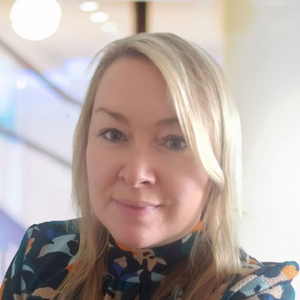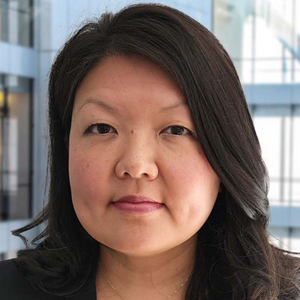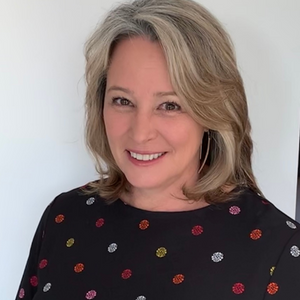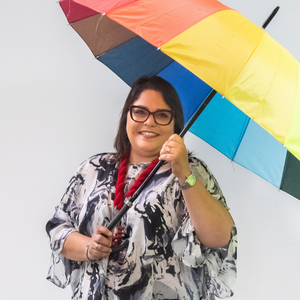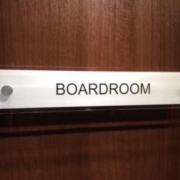Renee Connolly: Chief Diversity, Equity & Inclusion Officer, Merck KGaA, Darmstadt, Germany
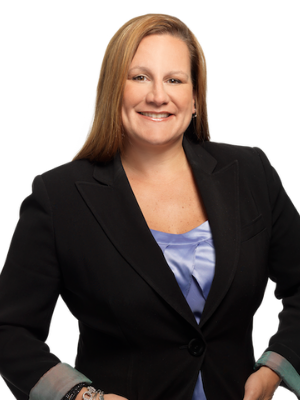 “I am retrospectively conscious, but not retrospectively critical. I learn from the past, to move me forward,” says Renee Connolly, based in Massachusetts. “I am prospectively thoughtful that the decisions I make today have consequences: so do I have the right facts to make those decisions?”
“I am retrospectively conscious, but not retrospectively critical. I learn from the past, to move me forward,” says Renee Connolly, based in Massachusetts. “I am prospectively thoughtful that the decisions I make today have consequences: so do I have the right facts to make those decisions?”
Connolly talks to why language matters, going for greatness, learning from the past and having the right resources.
From Communications to DEI
Connolly spent her career facilitating understanding in healthcare-related communications, until last August: “For 25 years of my life, I helped to make complex science and life sciences simple and understandable, so people could better support their lives, families and needs.”
As a college senior, Connolly lost her mother (lifelong non- smoker) to lung cancer and was compelled to enter communications in the burgeoning pharmaceutical biotech and life science field.
“I thought to myself, if I could help people on a journey, similar to ours, to better navigate that maze of specialist talk and treatments, then that’s making a difference.”
In taking on her evolved executive role, she agreed to turn her part-time advocacy of DEI into a full-time opportunity to transfer her skills.
There’s still so much to understand in the deep rootedness of what it really means to help people feel they are heard, included, and really belong,” says Connolly. “Language matters and impacts people in different ways, and DEI is a lot about language and the use of words.”
Listening and Language Matters
Now in her DEI remit, Connolly is facilitating how people better understand each other. She collaborates with Merck KGaA, Darmstadt, Germany’s many stakeholders including advising senior leadership, partnering with recruiters, engaging with employees at all levels of the organization and importantly partnering with Employee Resource Groups (ERG’s), to tell their stories and amplify their voices. Working in this space internationally requires her to keep her “ears wide open.”
“It creates constant awareness to be truly open-minded and to not put on blinders, to not put defenders up, and to really listen, wholeheartedly,” she says. “We’re creating an environment where people feel they belong and are nurtured and where we are nourishing our business for top-line growth.”
Connolly notes that her role requires emotional, mental and physical muscles every day – leading with empathy. She feels like the right person in this critical moment for our company and communities, with the right balance of skills and experience to take DEI to the next level for her organization.
Going For Greatness
“The world could be imploding around me, and I have a mantra of ‘It will be great’ or ‘I stand in a place of believing in an outcome filled with ‘greatness’,” says Connolly. “It’s not just positive mindset. I actually believe that even if the journey to get there is full of hard lessons, I’m always looking for greatness.”
When told something is impossible, a discerning question she asks is: “It couldn’t be done? It shouldn’t be done? Or it wouldn’t be done?” And depending on the answer, she may turn to how to make it possible.
The loss of her mom left Connolly with resilience. While she feels every scale of her emotions, she still tends to be a “glass half-full” person who considers herself fortunate and brings positive energy to those around her. She does what she says and says what she does, rallying her team when she commits to a vision.
“I’m a big believer that it’s the team, not the individual, that drives success. It is the collective good of many,” she says. “I love DEI because it drives progress when we realize – in some way, shape, or form – that we’re more alike than we are different.”
That emphasis on “team” has been instilled throughout her life from playing many organized sports. Connolly was a college athlete, and her entire family (including her three teenage sons and her 8 year old daughter) is athletic. She loves observing the parallels between business and individual and team sports. That spirit of healthy competition has gifted her great skillsets as well as a deep appreciation for excelling and accelerating her own growth.
There are many “dominoes” in teamwork that make you have a successful win or loss. In business, Connolly applies this and has come to find that “there’s a wisdom in knowing what you don’t know” and you don’t have to be the smartest person in the room.
“Earlier in my career, I thought I had to be the one with the voice. Now, I realize what I have to do is give or encourage or support the voices that have the information required, not always be the voice,” she says. “That’s the muscle you develop with maturity and by realizing the amazing contributions that many voices bring to a conversation. That’s the muscle you develop when you embrace the diversity of thinking in a team to drive forward.“
Retrospectively Conscious, Not Retrospectively Critical
Cultivating patience for herself and others is perhaps a skill Connolly built up by raising four children, as this year she has one in elementary, one in middle, one in high school and one in college. Talk about patience. Each age, experience and interaction requires you to be patient and that has mattered for Connolly as a leader.
“In a field like DEI, you see so much potential right away. But it’s necessary to have the patience to realize there are steps to get there, and you have to do those steps well. You can’t run before you walk,” she says. “Patience is not weakness, as I may have seen it before. It’s a virtue of understanding that you must work towards goals in a methodical way to make sure that you’re iterative enough to get the best possible outcome.”
Aware that she makes her own decision based on current knowledge—and that there will always be more to learn, Connolly tends to not focus on criticizing how past decisions were made, hers or others: “I try to learn from the past, but focus forward. Especially now, every day brings new circumstances and we use our best judgement, and most of us have positive intent.”
This makes her retrospectively conscious, not retrospectively critical, as she puts it – focusing on her responsibility today.
Why You Don’t Need “More”
When Connolly was leveling up from doing to managing others, she used to say she needed “more” to get it all done, but one of her mentors changed her entire frame of thinking: “Your problem is not getting more people or more money or more resources,” he told her. “It’s getting the right people, the right money, the right resources.”
Other words she lives by as a communications professional is to treat every opportunity like opening night: “It doesn’t matter how little or big the engagement is, respect and know your audience. Realize that people are spending time to listen or talk to you so make sure your message lands.”
She values the advice to be true to your purpose: “When you’re often counseling senior leaders, do you want to tell them what they want to hear? Or do you want to be true to yourself?” While a job may require different approaches at different times, it’s important to keep a purposeful essence in how one approaches everything (for her, a spirit of greatness and creativity).
Guiding Others and Serving a Mission
Mentoring young talent fulfills her soul. It reminds her of her younger self, looking for guidance after losing her mother. She loves instilling in young women to have the confidence that they can do more than they thought possible. As a mission-centered person, she sits on several boards, from the Massachusetts Conference for Women to the Home for Little Wanderers (child welfare to American Cancer Society (New England). One of her most prized awards was entitled: “Service above Self”—it is this she uses to guide her commitment to share her talents, treasure and time to help those who are in most need.
She emphasizes the importance of having fun. At her best moments in her journey, she was enjoying the work, serving a mission, or making something better.
By Aimee Hansen


